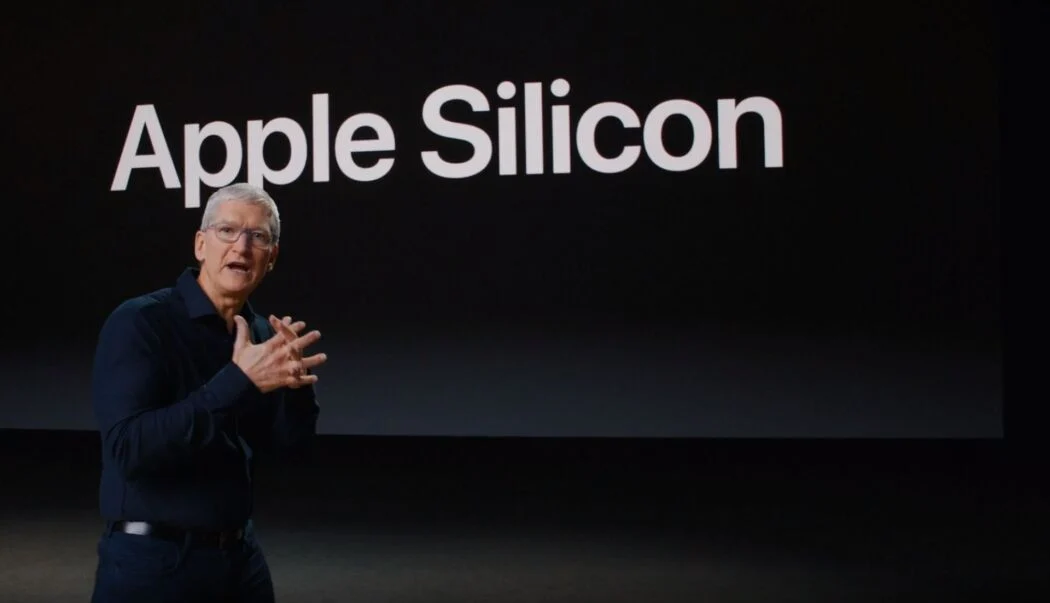Apple Silicon in 2025: Revolutionizing Performance and Efficiency

Apple Silicon has transformed the computing landscape since its debut in 2020, powering MacBooks, iMacs, and even iPads with unparalleled performance and efficiency. As we dive into 2025, Apple’s M-series chips—now including the M2, M3, and beyond—continue to dominate the industry. This SEO-optimized blog post explores what makes Apple Silicon so special, its advantages, use cases, and what to expect in the future. Whether you’re a tech enthusiast, professional, or casual user, here’s why Apple Silicon matters.
What Is Apple Silicon?
Apple Silicon refers to Apple’s custom-designed processors, built on ARM architecture, that power its devices. Starting with the M1 chip in 2020, Apple transitioned from Intel processors to its own chips, like the M2, M3, and their variants (e.g., M2 Pro, M3 Max). These chips integrate the CPU, GPU, Neural Engine, and other components into a single System on a Chip (SoC), delivering exceptional performance and power efficiency.
Why Apple Silicon Stands Out in 2025
1. Unmatched Performance
- Powerful CPU and GPU: The M3 Max, for instance, offers up to 16 CPU cores and 40 GPU cores, rivaling high-end desktop PCs for tasks like 8K video editing and 3D rendering.
- Real-World Speed: Benchmarks show the M3 Pro outperforms many Intel Core i9 and AMD Ryzen 9 laptops in multi-core tasks, making it ideal for professionals.
- Scalability: From the base M2 in the MacBook Air to the M3 Ultra in the Mac Studio, Apple Silicon scales to meet diverse needs.
2. Industry-Leading Efficiency
- Battery Life: Apple Silicon’s ARM-based design sips power, enabling MacBooks to achieve 15–22 hours of battery life, far surpassing most Windows laptops.
- Thermal Management: Macs run cooler and quieter, often without fans (e.g., MacBook Air), thanks to efficient chip design.
- Sustainability: Lower power consumption aligns with Apple’s eco-friendly goals, reducing carbon footprints.
3. Unified Architecture
- Seamless Ecosystem: Apple Silicon powers Macs, iPads, and even the iPhone (A-series chips), enabling features like Universal Apps and Sidecar.
- Optimized Software: macOS and apps like Final Cut Pro are tailored for Apple Silicon, ensuring smoother performance than on Intel-based Macs.
- Neural Engine: The 16-core Neural Engine in M3 chips accelerates machine learning tasks, benefiting AI-driven apps and features like Live Text.
Key Advantages of Apple Silicon
- Performance Per Watt: Apple Silicon delivers desktop-class power in ultraportable devices, outpacing competitors like Qualcomm Snapdragon or Intel’s Meteor Lake chips.
- Longevity: Macs with Apple Silicon receive macOS updates for 7–10 years, ensuring long-term value.
- Security: Features like Secure Enclave and on-chip encryption enhance data protection.
- Creative Workflows: Tools like Adobe Premiere, Logic Pro, and Blender run faster on Apple Silicon, making it a favorite for creators.
Apple Silicon vs. Competitors in 2025
Intel and AMD
- Performance: Intel’s Core Ultra 2 and AMD’s Ryzen AI 300 series compete closely in raw CPU power, especially for gaming or specialized software.
- Software Compatibility: Windows PCs support a broader range of legacy apps and games, where Apple Silicon may require workarounds (e.g., Rosetta 2).
- Price: Windows laptops often offer similar performance at lower prices, but lack Apple’s optimization.
Qualcomm Snapdragon
- Windows on ARM: Snapdragon X Elite chips power efficient Windows laptops, but their app ecosystem lags behind Apple’s.
- Battery Life: Snapdragon matches Apple in battery efficiency but falls short in GPU performance and software integration.
Verdict: Apple Silicon leads in optimization and ecosystem integration, but Intel/AMD laptops are better for gaming or budget-conscious buyers.
Popular Devices Powered by Apple Silicon in 2025
- MacBook Air (M2/M3): Ultra-portable, fanless, and perfect for students or casual users, starting at $999.
- MacBook Pro (M3 Pro/Max): A powerhouse for video editors, developers, and creatives, with stunning Mini-LED displays.
- iMac (M3): All-in-one desktop with vibrant colors and crisp audio, ideal for home or office use.
- Mac Studio (M2/M3 Ultra): Compact yet powerful for 3D artists, musicians, and data scientists.
- iPad Pro (M2/M4): Blurs the line between tablet and laptop, especially with Stage Manager in iPadOS.
Use Cases for Apple Silicon
- Students: The MacBook Air’s portability and battery life make it perfect for note-taking, research, and coding.
- Creatives: Video editors and musicians benefit from optimized apps and GPU acceleration on MacBook Pro or Mac Studio.
- Developers: Apple Silicon is a top choice for iOS/macOS app development, with robust tools like Xcode.
- Business Professionals: Secure, reliable, and efficient, Macs excel in productivity tasks like presentations and data analysis.
What’s Next for Apple Silicon?
Rumors suggest Apple is working on:
- M4 Series: Expected to debut in late 2025 or 2026, with even better AI performance and efficiency.
- 3nm and 2nm Processes: TSMC’s advanced manufacturing will shrink chips further, boosting speed and reducing power use.
- Expanded AI Capabilities: Enhanced Neural Engines could power on-device AI features, competing with tools like Grok 3.
- Gaming Push: Apple may improve Metal API and partner with developers to bring AAA games to Macs.
Conclusion: Why Choose Apple Silicon in 2025?
Apple Silicon has redefined what’s possible in laptops and desktops, blending power, efficiency, and elegance. Whether you’re editing 8K videos, coding apps, or browsing the web, devices powered by M2 or M3 chips deliver a seamless experience. While competitors like Intel and Qualcomm are catching up, Apple’s tight hardware-software integration keeps it ahead.
Ready to experience Apple Silicon? Check out the latest MacBooks and iMacs at Apple’s official store or retailers like Amazon and Best Buy. Share your thoughts in the comments—do you love Apple Silicon, or do you prefer another platform?
Keywords: Apple Silicon, M3 chip, MacBook 2025, Apple M2, Apple Silicon vs Intel, best MacBook chip, Apple Silicon performance, M4 chip rumors
AI Disclaimer
This article was created with the assistance of artificial intelligence to ensure accuracy and relevance. Human editors have reviewed and refined the content to provide reliable information. For the latest updates on Apple Silicon, check official sources like Apple’s website or trusted tech reviews.


